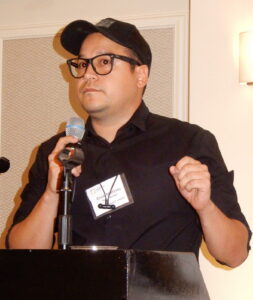
CIF’s governing and decision making bodies are made up of members and empowerment is central to all programming where a organizing efforts promote leadership as to not only to meet people’s direct needs, but also to create pathways to sustained growth, systemic change, and lasting impact, while fostering independent growth.
Asamblea
Each month a worker assembly, or asamblea, is held as an open forum for program members to discuss issues, priorities, and vote on proposed changes to programming. This is open to all members where feedback is elicited, changes are proposed, needs for programs and approach are evaluated.
Directiva
The directiva, a committee of the board of directors that comes from the asamblea, is tasked with representing the community needs, and updating documents such as the code of conduct based on proposals from the program member’s general meetings and feedback. This committee is made up of members, volunteers and chaired by board members, who are also program members. From the directiva a minimum of two program members then serve directly on the Board of Directors.
Board of Directors
The Board of Directors (BOD) is composed of community members and immigrants within the wider community. The BOD is responsible for setting strategic goals that align with mission and vision, being ambassadors for the organization, and evaluating its work for impact, and sustainability.
Women’s Group
The Women’s Group evaluates programs on the basis of gender equity and ensures representation among all community members being served. Most notably within the jobs program, to expand programming to include “typically women focused jobs” such as house cleaning, and caregiver, while encouraging women to attend “typically male dominated trainings” such as carpentry, drywall, painting, and other construction work. This group also volunteers and helps plan events, and support programming.
Community Investment
Members are encouraged to teach, mentor, volunteer, and share within the community. Community investment allows for job production within the community where skilled workers can teach classes to their peers for a small price, or members volunteer at events such as mother’s day or Christmas to give back. Sixty nine registered employers were once waiting for work at the labor center, this exemplifies the type of reciprocity that many ‘graduated’ members contribute after they no longer need services.
